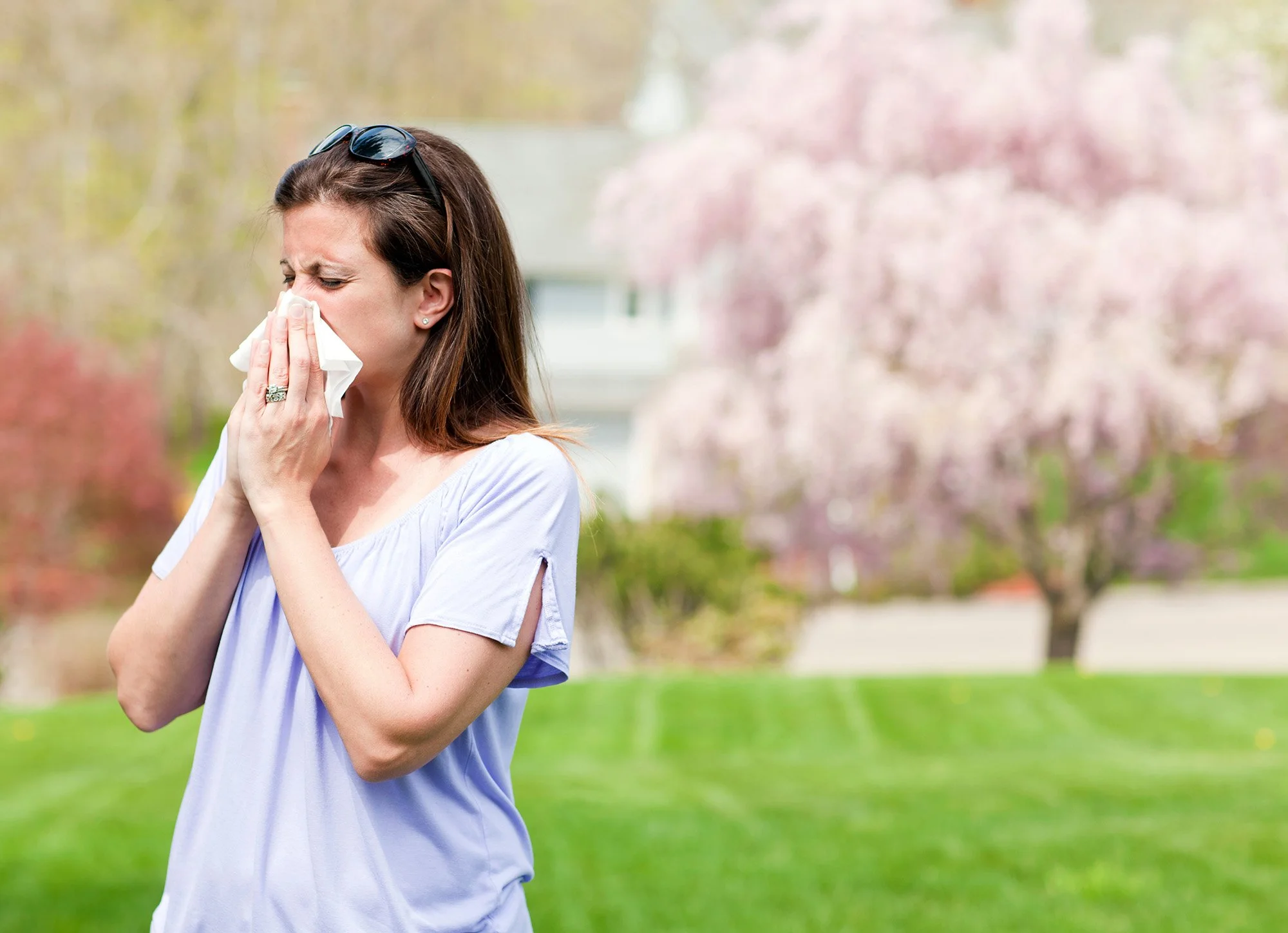How Acupuncture can help with Hay Fever
Hay fever - also known as seasonal allergic rhinitis - affects more people than you think.
According to research, 19% of adult Australians suffer hay fever yearly, usually during peak grass pollen season, which begins around late spring/early summer (1).
For those particularly sensitive, hay fever symptoms can be experienced all year round.
What are the symptoms of hay fever?
Hay fever can be triggered by many environmental allergens, including dust, mould and pet hair - but most people experience it in response to pollen, especially grass pollen.
When the allergen enters the body (usually via the nose or eyes), the body treats it as a foreign matter, triggering an allergic reaction where the body releases histamines.
Histamines cause capillaries to dilate, creating many common symptoms associated with hay fever.
These symptoms aren’t too dissimilar from experiencing a cold or flu and include the following:
- Itchy nose, ears, throat and eyes - occasionally, other skin areas may also be itchy in contact with the allergen.
- Blocked, stuffy or runny nose.
- Watery, red, puffy or sore eyes.
- Excessive sneezing and need to sneeze.
- Headaches and migraines.
For most people, treatment options are limited, usually involving a mix of antihistamines, nasal sprays, and eye drops to combat some of the worst symptoms. Most of these treatment options are available over the counter at local pharmacies, with many experiencing various hay fever relief from using them. Some over-the-counter medications can also have a ‘rebound’ effect(2).
But there is another option: Acupuncture.
How can Acupuncture help with hay fever?
Acupuncture comes from traditional Chinese medicine and involves a healing method where thin, sterile needles are inserted into different acupuncture points across the body.
In doing so, the needles stimulate and change the energy channels within the body, helping promote greater health and well-being. Acupuncture can help reopen the channel and flow when an energy channel gets blocked.
But there is also a lot of scientific evidence behind Acupuncture and how it interacts with different body components to create positive responses to various conditions like hay fever.
Acupuncture has been linked to the release of neurochemicals that help combat various illnesses and conditions. In the case of hay fever, several studies have pointed to how Acupuncture reduces inflammatory neuropeptides that are released when the nasal area becomes irritated by allergens, including
- Substance P (SP)
- Calcitonin gene-related peptide (CGRP)
- Vasoactive intestinal peptide (VIP).
These neuropeptides typically increase inflammation (leading to the typical symptoms hay fever sufferers experience). By reducing the release of these neuropeptides, Acupuncture reduces the symptoms experienced and helps reduce suffering overall experienced by hay fever sufferers.
Research around acupuncture and hay fever has shown that it provides effective temporary relief and ongoing benefits for up to three months post-treatment. It is a recommended treatment for allergic rhinitis for those who prefer a non-pharmacologic treatment option (3).
Other ways to reduce hayfever symptoms
Other than medication and acupuncture, minimising exposure to allergens will go a long way in preventing and reducing hayfever symptoms. If pollen is the culprit, you’ll need to
Stay indoors if it’s windy, there’s a thunderstorm or the pollen count is high
Avoid grassy areas, especially ones that have just been mowed
Wear sunglasses, and bring tissues with you when you go out and wash your eyes when you get home
Keep windows and doors closed in your home and use recirculating air conditioning in the car
Avoid plants and flowers that are known to trigger hayfever
Why should you consider acupuncture for hay fever
Acupuncture can provide an effective, safe and cost-effective way to treat hay fever symptoms, and the research confirms that many people who seek acupuncture treatment experience positive results.
If you suffer from hay fever and antihistamines haven’t been working for you, this could well be your next best treatment option for hay fever relief. Get in touch with our Perth acupuncture team today!
-
(1)AIHW - Australian Institute of Health and Welfare (2020) Allergic rhinitis ('hay fever'), AIHW, Australian Government, accessed 19 October 2022.
(2) (Rhinitis medicamentosa (RM) - https://www.ncbi.nlm.nih.gov/books/NBK538318/)
(3) Seidman MD, Gurgel RK, Lin SY, Schwartz SR, Baroody FM, Bonner JR, et al. Clinical practice guideline: allergic rhinitis. Otolaryngology–head and neck surgery: official journal of American Academy of Otolaryngology-Head and Neck Surgery. 2015;152(1 Suppl):S1-S43.
APA
Australian Institute of Health and Welfare. (2020). Allergic rhinitis ('hay fever'). Retrieved from https://www.aihw.gov.au/reports/chronic-respiratory-conditions/allergic-rhinitis-hay-fever
MLA
Allergic rhinitis ('hay fever'). Australian Institute of Health and Welfare, 25 August 2020, https://www.aihw.gov.au/reports/chronic-respiratory-conditions/allergic-rhinitis-hay-fever
Maintz L, Novak N. Histamine and histamine intolerance. Am J Clin Nutr 2007;85(5):1185-1196.
Hellgren J, Cervin A, Nordling S, Bergman A, Cardell LO. Allergic rhinitis and the common cold–high cost to society. Allergy. 2010;65(6):776-83.
Brozek JL, Bousquet J, Agache I, Agarwal A, Bachert C, Bosnic-Anticevich S, et al. Allergic Rhinitis and its Impact on Asthma (ARIA) guidelines-2016 revision. The Journal of allergy and clinical immunology. 2017;140(4):950-8.
McDonald JL, Smith PK, Smith CA, Changli Xue C, Golianu B, Cripps AW. Effect of acupuncture on house dust mite specific IgE, substance P, and symptoms in persistent allergic rhinitis. Ann Allergy Asthma Immunol. 2016 Jun;116(6):497-505

